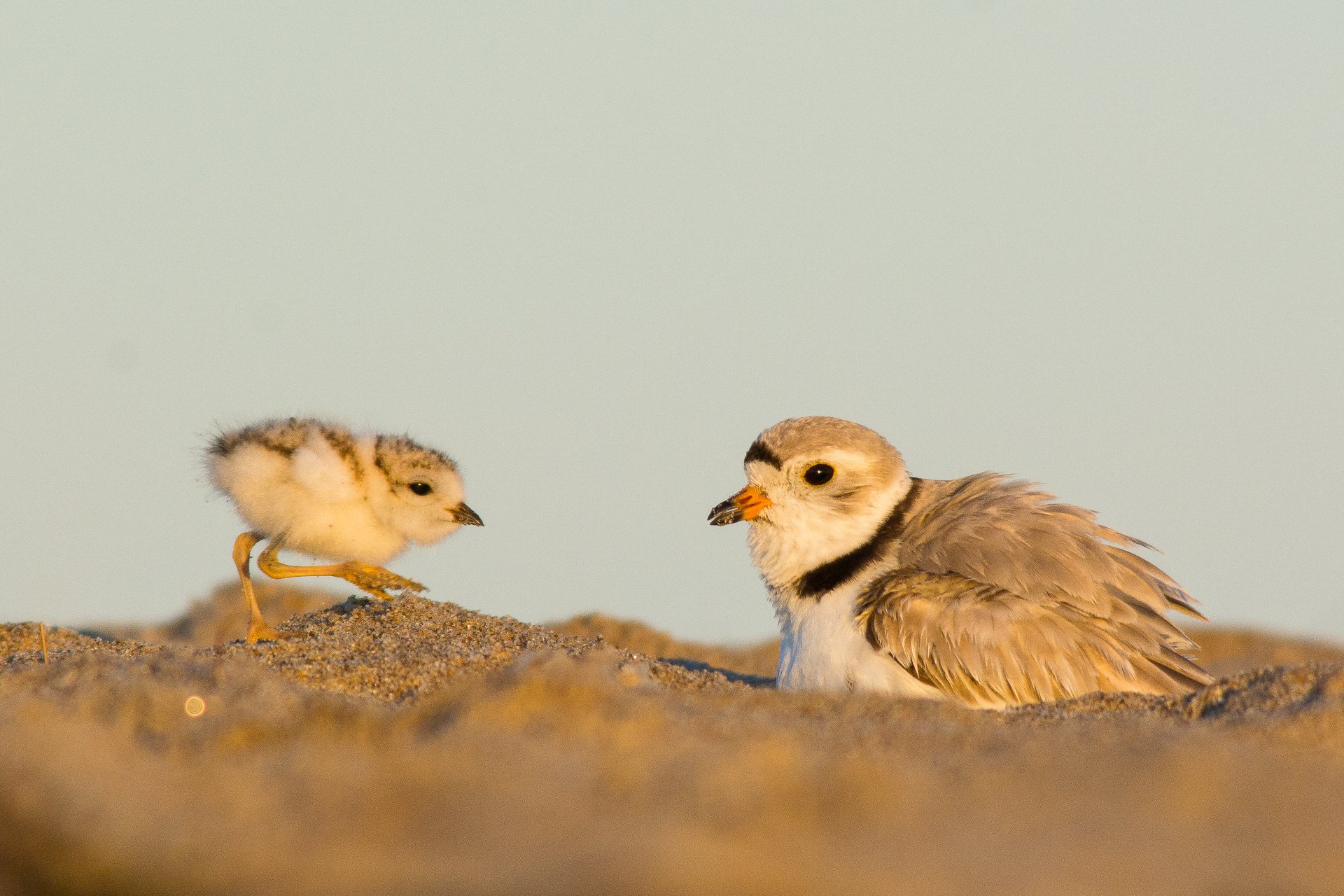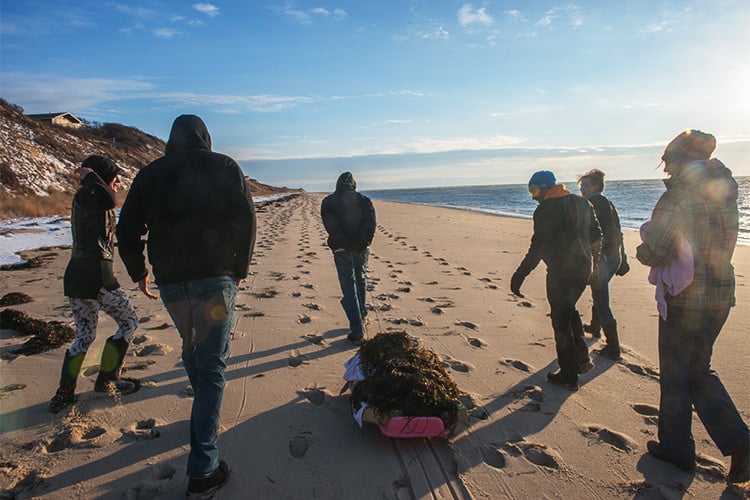Mass Audubon protects dozens of endangered species with different strategies from habitat protection, science-based management plans, and advocacy. Here are just a few of the ways we’re watching out for rare and declining wildlife.
Helping Shorebirds Share the Beach
Piping Plovers and Least Terns nest on the ground along Massachusetts’ sandy beaches, but they need space to raise their fluffy, tennis ball-sized chicks.
Mass Audubon protects nearly half of the state’s Piping Plover and Least Tern population from shoreline development and human disturbance, and works with the state to manage the rest under our Coastal Waterbird Program.
While most people notice Mass Audubon’s effort to directly protect shorebird nests—sometimes including ranger patrols or symbolic fencing to keep beachgoers a healthy distance from nests—the Costal Waterbird Program also works through environmental education and science-based political advocacy.
Thanks to these efforts, Piping Plovers have rebounded from 135 pairs in 1986 to more than 800 pairs in 2020, and they’re still on the upswing!
Keeping Sea Turtles out of the Cold
Every November, volunteers and staff from Wellfleet Bay Wildlife Sanctuary rescue cold-stunned sea turtles from the chilly shores of Cape Cod Bay. Most of them are the smallest and rarest of the sea turtles, the Kemp’s Ridley, which are already threatened by abandoned fishing gear and plastic pollution.
Climate change is driving an increase in autumn strandings. Ironically, warmer waters in summertime mean more Kemp’s Ridleys—which normally stay south of Cape Cod—are migrating further north. When waters cool and turtle instincts say “go south,” turtles are trapped by the unique shape of Cape Cod and often become hypothermic before they make it around the tip of the Cape.
Since the 90s, the average number turtles in Cape Cod Bay—and the average number of strandings—has skyrocketed. Normally, Mass Audubon partners with the New England Aquarium to rehabilitate and release cold-stunned sea turtles. This past winter, there were so many strandings that we had to send them to facilities as far away as Houston for treatment and release!
Advocating for Legal Protections
While many species are threatened or declining, the word “endangered” only refers to a species that’s protected under the federal Endangered Species Act (or the Massachusetts Endangered Species Act, which protects species at risk locally in Massachusetts). These laws require the state and federal government to monitor and conserve habitat for species at risk of extinction.
Outside of directly protecting rare wildlife on our sanctuaries, one of the most powerful things we can do for rare species is advocate for their legal protection. After our Breeding Bird Atlas showed precipitous declines in Saltmarsh Sparrows, American Kestrels, and Eastern Meadowlarks, Mass Audubon petitioned the state to list each species as Endangered. We also stand up for the both the federal and Massachusetts Endangered Species Acts when they’re under attack.




